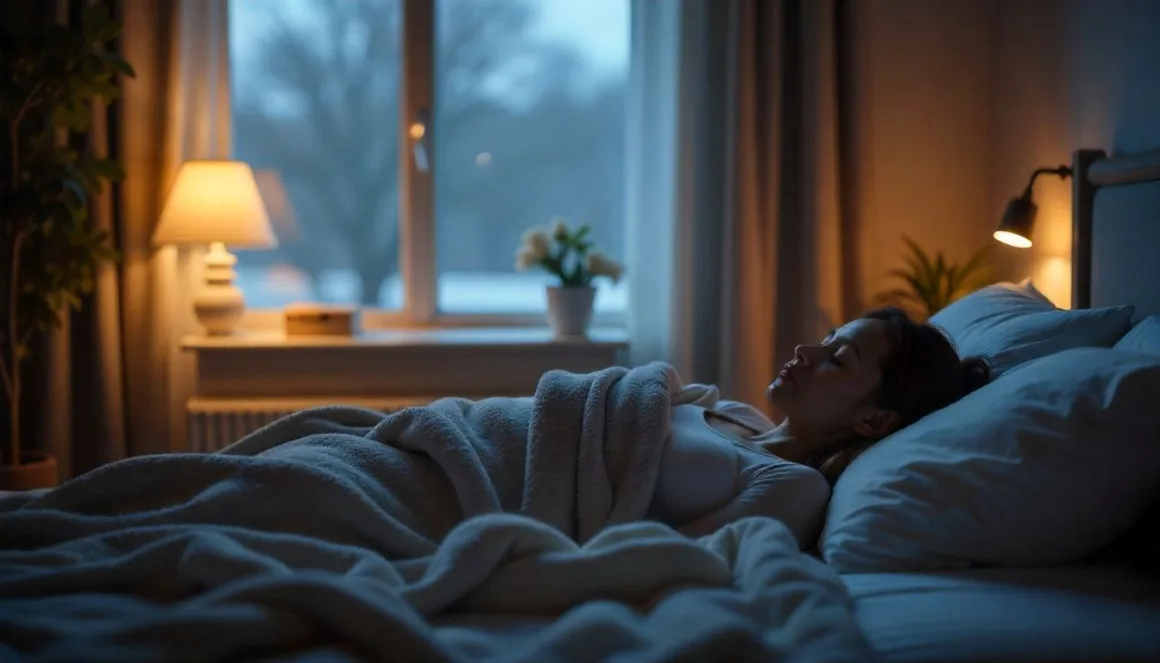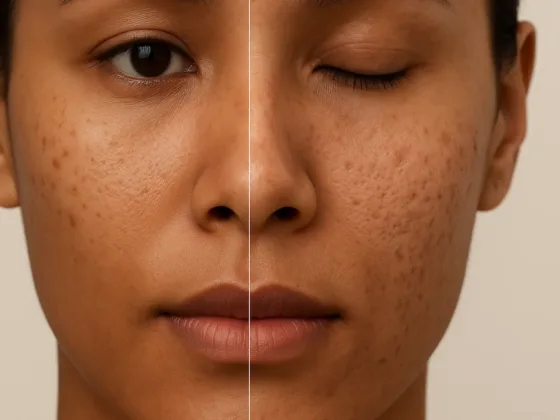Table of Contents Show
If you’re constantly tossing and turning at night, you’re not alone. Millions of people struggle to get quality sleep, and it affects far more than just how groggy you feel the next day. Poor sleep can mess with your mood, memory, immune system, and even your heart. The good news? You don’t need a prescription to sleep better. Practicing solid sleep hygiene — essentially healthy sleep habits — can go a long way toward improving your rest. Let’s walk through 8 tried-and-true tips that can help you fall asleep faster and wake up feeling refreshed.
1. Stick to a Consistent Sleep Schedule
One of the simplest (yet most effective) things you can do is go to bed and wake up at the same time every day. Our bodies run on an internal clock called the circadian rhythm. Throw it off, and you’re likely to feel groggy, cranky, or just plain off.
Tip: Try to set a regular sleep and wake time that allows for 7–9 hours of rest, even on weekends. Your body loves routine.
“Sleep consistency is more important than duration alone,” says Dr. Matthew Walker, professor of neuroscience and psychology at the University of California, Berkeley, and author of the bestselling book Why We Sleep.
Case Study: Jen, a freelance graphic designer, used to go to bed at 2 a.m. and sleep until 10 a.m.—except on weekends when she’d stay up even later. After committing to a consistent 11 p.m.–7 a.m. schedule for 30 days, she reported falling asleep faster, waking up more energized, and feeling less anxious throughout the day.
2. Create a Relaxing Bedtime Routine
Our brains need cues to know when it’s time to wind down. That’s where a bedtime routine comes in. Whether it’s reading a book or taking a warm shower, those little rituals help ease your body into sleep mode.
Some calming activities include:
- Flipping through a novel (paper, not a screen!)
- Enjoying a warm bath
- Gentle stretching or yoga
- Listening to calming music
- Deep breathing or meditation
“A consistent bedtime ritual helps separate sleep time from activities that can cause excitement or stress,” notes the National Sleep Foundation.
3. Cut Back on Screens Before Bed
Phones, tablets, and TVs emit blue light, which can mess with melatonin production—the hormone that tells your brain it’s bedtime. If you’re checking emails or scrolling TikTok before bed, you could be tricking your brain into thinking it’s still daytime.
Better bedtime habits:
- Power down devices at least an hour before sleep.
- If you must use a screen, switch to night mode or use blue light filters.
- Try listening to an audiobook or reading a physical book instead.
Did you know? According to a study published in PLOS ONE, exposure to LED-backlit screens in the evening reduces melatonin secretion and impacts sleep onset.
4. Make Your Bedroom a Sleep Haven
Your environment matters—a lot. A hot, noisy, or too-bright room can seriously mess with your ability to fall and stay asleep.
Sleep-friendly upgrades:
- Use blackout curtains to block out light.
- Keep your room cool—around 60–67°F (16–19°C) is ideal.
- Try a white noise machine or fan to cancel out background noise.
- Make sure your mattress and pillows actually support your sleep position.
5. Watch What You Eat and Drink
What you put into your body—especially in the evening—can either help or hurt your sleep. Caffeine, heavy meals, and alcohol are common culprits.
Tips for better nighttime nutrition:
- Skip caffeine after 2 p.m.
- Avoid big meals close to bedtime.
- Watch your alcohol intake. It may make you sleepy at first, but it disrupts REM and deep sleep.
- Stay hydrated, but ease up on fluids an hour before bed to avoid midnight bathroom trips.
6. Move Your Body During the Day
Daily movement is great for sleep. It helps burn off stress and can improve how deeply you sleep. But timing matters.
Helpful exercise habits:
- Aim for at least 30 minutes of moderate activity most days.
- Avoid intense workouts within a couple of hours of bedtime.
- Even a light walk after dinner can help settle your mind and body.
“People who stay active generally fall asleep faster and sleep better,” notes the Mayo Clinic.
Stat to know: A study in the Journal of Clinical Sleep Medicine found that people who engaged in 150 minutes of moderate exercise per week experienced significant improvements in sleep quality and daytime energy.
7. Don’t Overdo the Naps
We all love a good nap, but too much daytime dozing can backfire. Long or late naps might make it harder to sleep when you really need to—at night.
Nap wisely:
- Keep naps under 30 minutes.
- Nap before 3 p.m. if you can.
- If you’re feeling sluggish every day, your nighttime sleep might need some TLC.
8. Quiet Your Mind Before Bed
Worries, racing thoughts, and to-do lists have a sneaky way of showing up right when you’re trying to sleep. Clearing your mental clutter can make a huge difference.
Try these wind-down tricks:
- Journal your thoughts to get them out of your head.
- Practice a few minutes of mindfulness or breathing exercises.
- Set a “worry time” earlier in the evening so it doesn’t follow you to bed.
“Many sleep issues are stress-related. Changing how we deal with thoughts before bed can help,” says Dr. Shelby Harris, a licensed clinical psychologist and board-certified in behavioral sleep medicine.
Frequently Asked Questions
Keeping a consistent bedtime and cutting out screens before sleep often helps the most.
Many people start seeing changes in just a week or two—sometimes even sooner.
Yes, just keep them short and early in the day.
Final Thoughts
You don’t need a total lifestyle overhaul to sleep better. Just making a few smart changes—like sticking to a bedtime routine, ditching screens, or creating a cozier sleep space—can lead to better, more restful nights.
Written by Jane Doe, Certified Sleep Coach from the Spencer Institute, with 7+ years of experience helping clients sleep naturally and soundly.
Want to dive deeper? Check out these trusted resources:
Start small. Stay consistent. Sleep better. You’ve got this.
Last updated: July 2025












